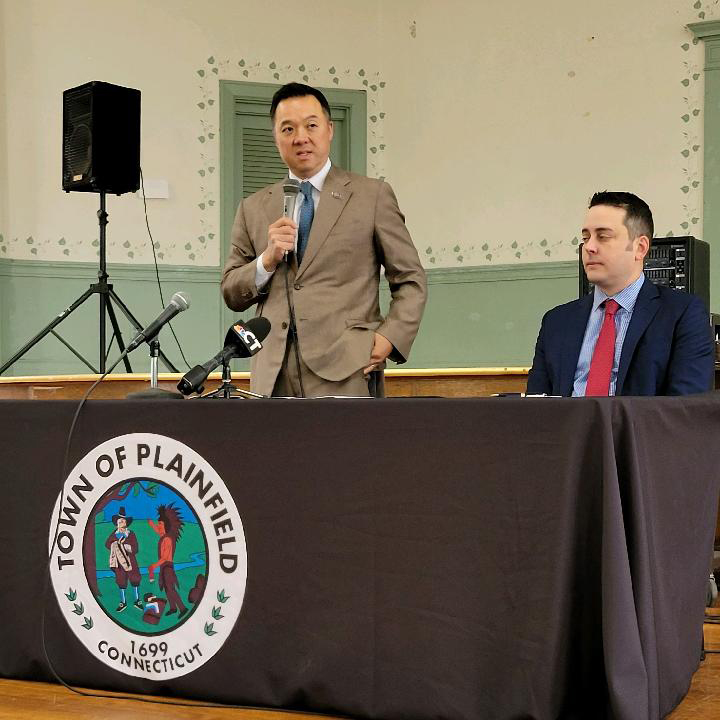Pride and Prevention: Supporting LGBTQ+ Youth and Reducing Substance Use
Posted on
June is Pride Month: an opportunity to honor the place of LGBTQ+ people in our communities, and to celebrate love and equality. Yet this year’s celebrations come amid a wave of anti-LGBTQ legislation and surging numbers of hate crimes against LGBTQ people. Rather than erasing Pride Month, this backdrop of controversy underscores the need for its very existence.
Now more than ever, how we support LGBTQ youth is crucial to their safety and well-being. To mark the start of Pride Month, we’re taking a look at how this moment calls for authentic and effective allyship, better legislation, and much-needed systemic change.
A Hostile Social Climate Drives Substance Use Among LGBTQ+ People
2023 saw hundreds of anti-LGBTQ bills introduced, from prohibitions on gender-affirming care to bans on transgender students using bathrooms and locker rooms that align with their gender identity. This type of legislation attempts to marginalize LGBTQ+ people—and indeed, there is a correlation between these laws and rates of bullying and hate crimes in schools.
For young people in particular, anti-LGBTQ laws target not only their access to healthcare and freedom of expression—they threaten their safety and well-being. They create hostile environments which legitimize bullying, rejecting, and discriminating against LGBTQ people, and they contribute to a stigma that can have severe impacts on their mental health and well-being.
Research clearly shows that when young people don’t feel accepted, supported, and safe, they are more likely to face mental health issues. The Trevor Project’s 2023 U.S. National Survey on the Mental Health of LGBTQ Young People found that among LGBTQ youth, 67% experienced symptoms of anxiety, 54% experienced symptoms of depression, and 41% had seriously considered suicide within the past year.
Yet without access to the care they need, young people may cope with these struggles by turning to drugs, alcohol, and tobacco. Substance use is more prevalent among LGBTQ teens, and rates of regular use are higher among those who reported experiencing physical harm due to their identity.
For children and teens whose brains are still developing (a process which continues until about age 25), any substance use carries a high risk of addiction and long-term impacts. By creating a more supportive, inclusive environment not only during Pride Month but throughout the entire year, we can prevent young people from experiencing mental health crises that lead to addiction.
Recent Prevention Efforts in Connecticut
From a legislative perspective, circumstances for LGBTQ people vary greatly by state. In Connecticut, as ACLU’s anti-LGBTQ bill tracking map shows, the situation is not so bleak. We are grateful to Attorney General William Tong for defending transgender students’ privacy and for his efforts to address youth vaping as well as the opioid epidemic.
 In July 2023, he joined a coalition of 16 state attorneys general to support schools’ ability to protect the privacy of transgender students—maintaining that information students share with teachers should only be conveyed to parents with the student’s express consent.
In July 2023, he joined a coalition of 16 state attorneys general to support schools’ ability to protect the privacy of transgender students—maintaining that information students share with teachers should only be conveyed to parents with the student’s express consent.
“Outing students against their will is dangerous. Students – especially LGBTQ+ youth who may lack support at home – need trusted adults to have their backs. I stand with attorneys general across the country in full support of Ludlow’s efforts to protect the privacy and safety of all of their students,” said Attorney General Tong.
In a visit to southeastern Connecticut last year, Tong also spoke about other efforts to protect the state’s young people, such as using the $16 million settlement from a suit against e-cigarette company JUUL to prevent youth vaping and nicotine use. The funds will go to Connecticut’s five Regional Behavioral Health Action Organizations (RBHAOs), including SERAC.
“RBHAOs are engaged in our local communities – building coalitions with prevention advocates, parents, youth, educators, healthcare providers and other community stakeholders and are well-positioned to use these funds so that they have the most impact,” stated Attorney General Tong.
Supporting LGBTQ+ Youth Well-Being
Across the country, individuals and organizations are taking a stand to correct the injustice and inequality that the LGBTQ+ community faces. With so much at stake, allyship requires more than raising awareness—it requires us to act.
As allies, we must educate ourselves, have tough conversations, make our support visible, and show up for the community. For those who aren’t sure where to start, The Trevor Project offers an Allyship in Action guide which defines key terms to know and offers suggestions for putting your support into action.
For those looking to donate or get involved, there are many national organizations currently working to support LGBTQ+ youth, advocating for their rights, and helping them overcome stigma and mistreatment.
The Human Rights Campaign (HRC) has developed a variety of programs aimed at creating safe, inclusive environments. The Welcoming Schools program provides trainings, lesson plans, and resources to help schools prevent bullying, while the Youth Well-Being Program helps educators, professionals, and advocates to protect and promote LGBTQ+ youth well-being. Many colleges and universities also hold Lavender Graduation ceremonies each year to honor the achievements of LGBTQ+ and ally students.
